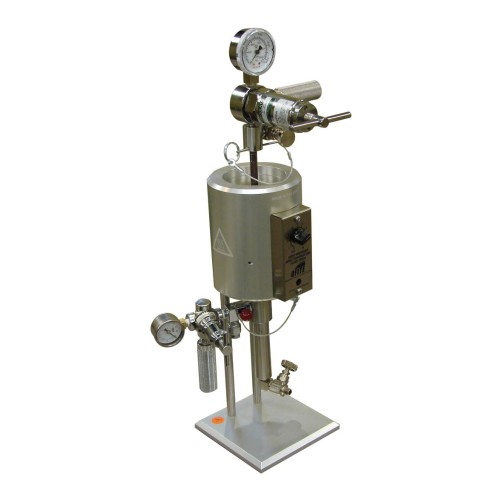HTHP
A drilling fluid HTHP (High Temperature High Pressure) procedure involves heating a sample of drilling fluid to a specific temperature simulating downhole conditions, then applying pressure to measure the amount of filtrate (fluid that passes through a filter) collected over a set time, essentially evaluating the fluid’s ability to resist fluid loss under extreme temperatures and pressures in a wellbore; this test is typically conducted using a specialized HTHP filter press apparatus, where the fluid is heated within a cell, and pressure is applied to monitor filtrate volume and filter cake thickness.
Key steps in a drilling fluid HTHP procedure:
Sample preparation:
Obtain a representative sample of the drilling fluid.
Fill the HTHP filter press cell with the fluid sample, ensuring appropriate volume to account for expansion at high temperatures.
Temperature setting:
Set the desired test temperature on the heating jacket of the HTHP filter press, which should match the expected downhole temperature.
Pressure application:
Once the fluid reaches the desired temperature, apply the specified differential pressure to the cell using the pressure regulator.
Filtration process:
Initiate filtration by opening the outlet valve and collect the filtrate over a predetermined time period (usually 30 minutes).
- The HTHP jacket is preheated to 10°F (5.6°C) above the test temperature.
- Add the test fluid to the test cell and prepared for testing.
- A thermocouple is placed into the top portion of the test cell.
- The test cell is placed in the preheated jacket.
- Top and bottom pressure regulators are connected. Nitrogen gas is applied through the top valve at 100 psi (690 kPa).
- The pressurized test cell and fluid is allowed to heat for 60 minutes.
- At the end of 60 minutes, the pressure on the top regulator is increased to 600 psi and the bottom receiver pressure is adjusted to 100 psi, resulting in a 500-psi differential pressure across the filter paper.
- The bottom test cell valve is opened to start the test.
- After 30 minutes, the bottom valve is closed to end the test.
